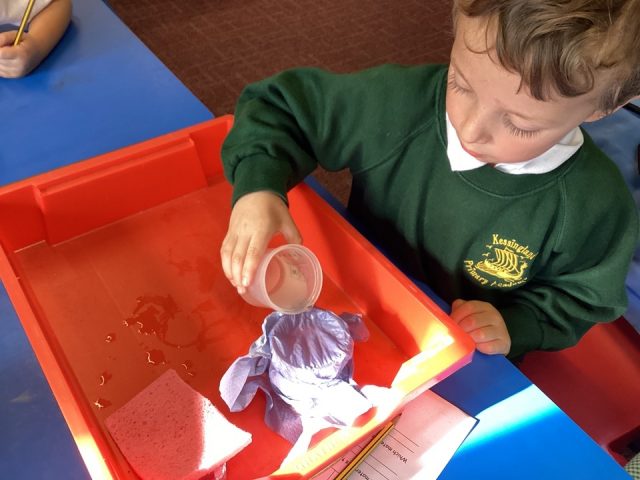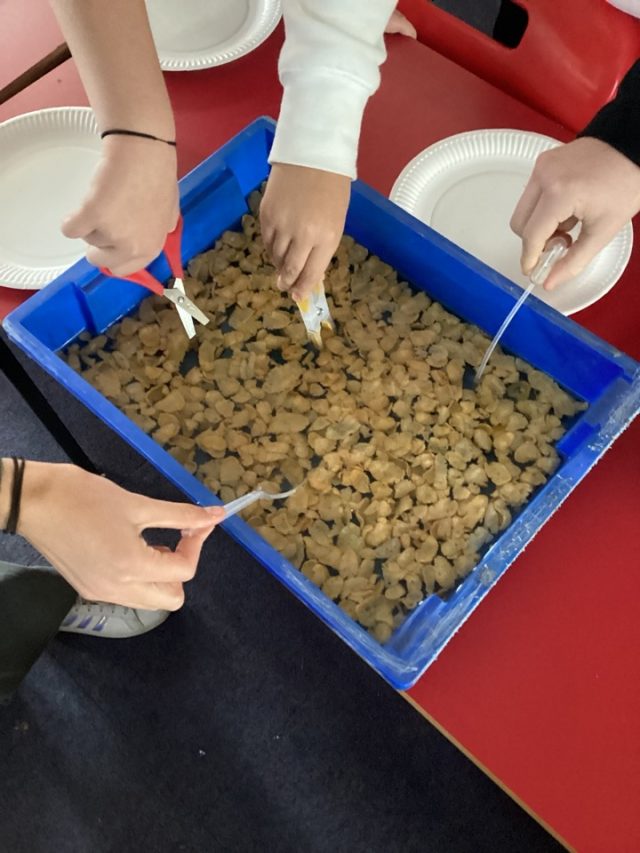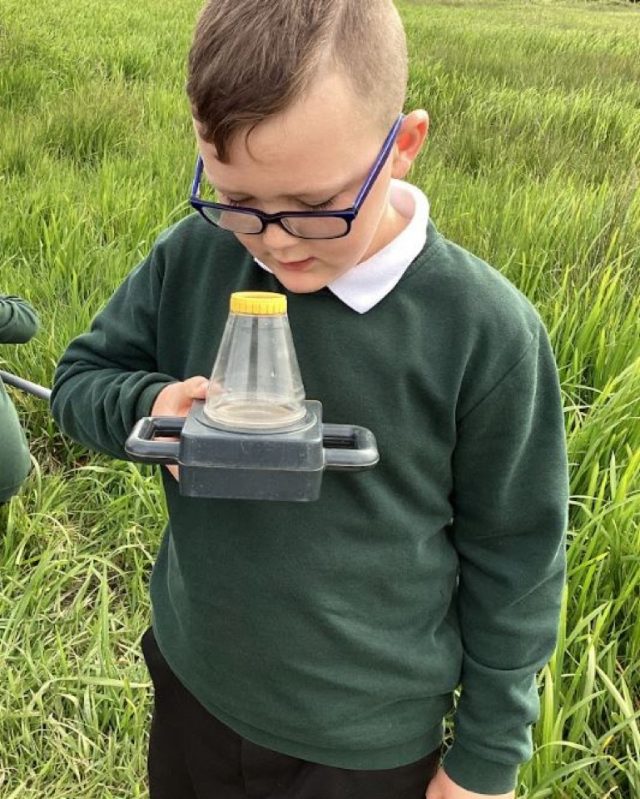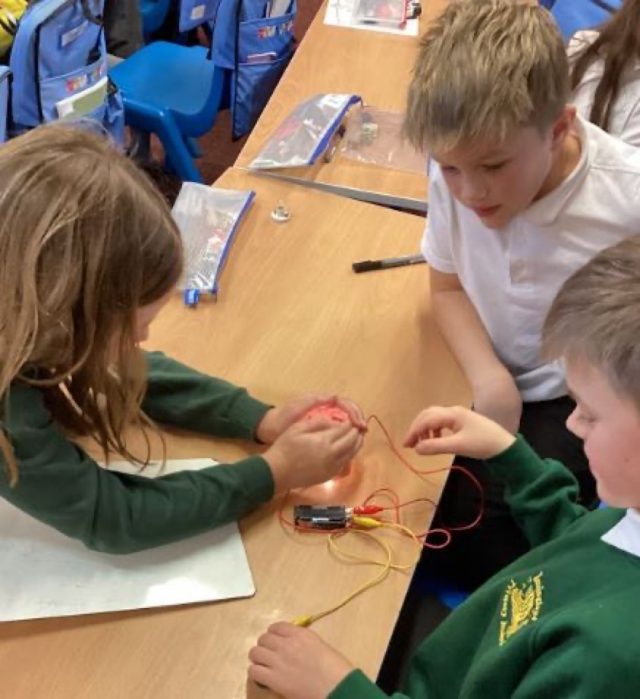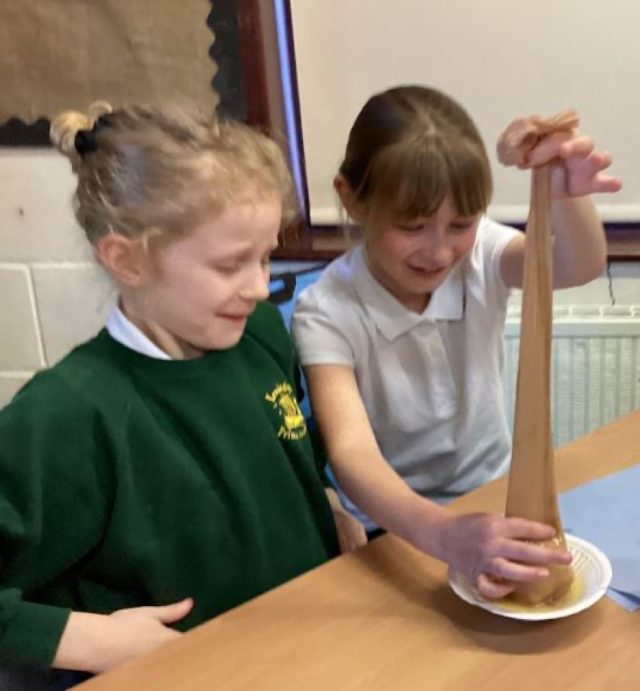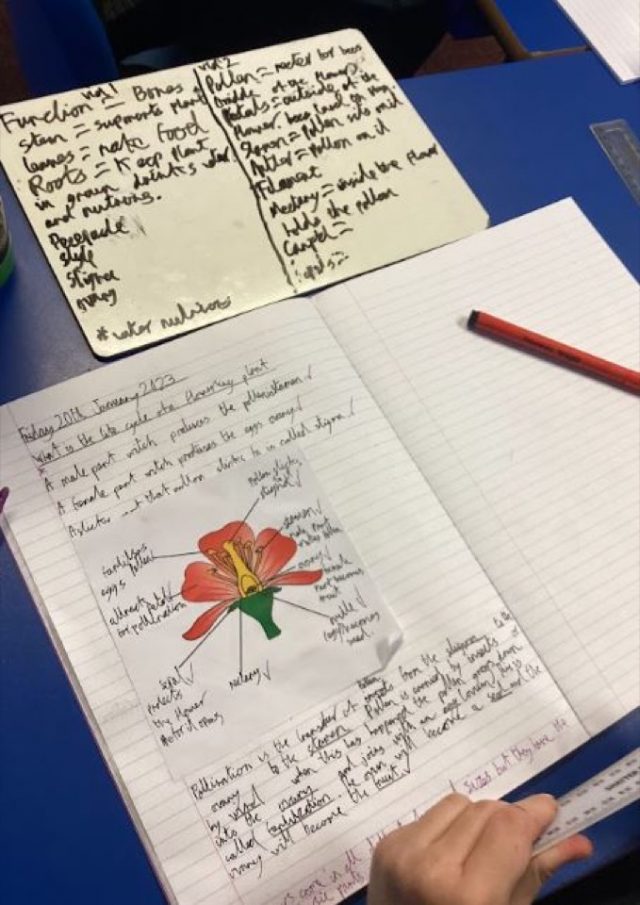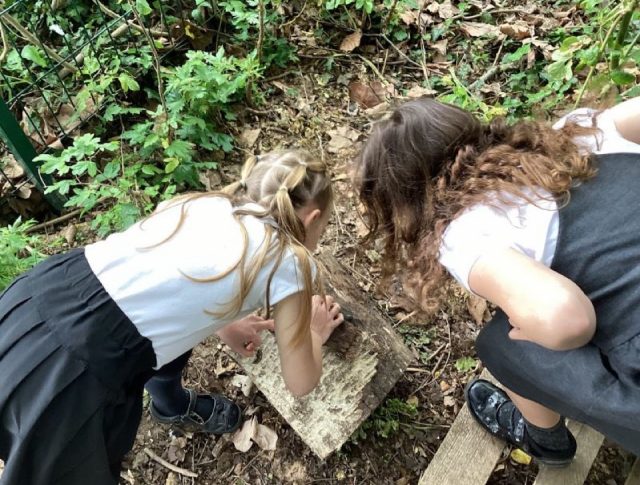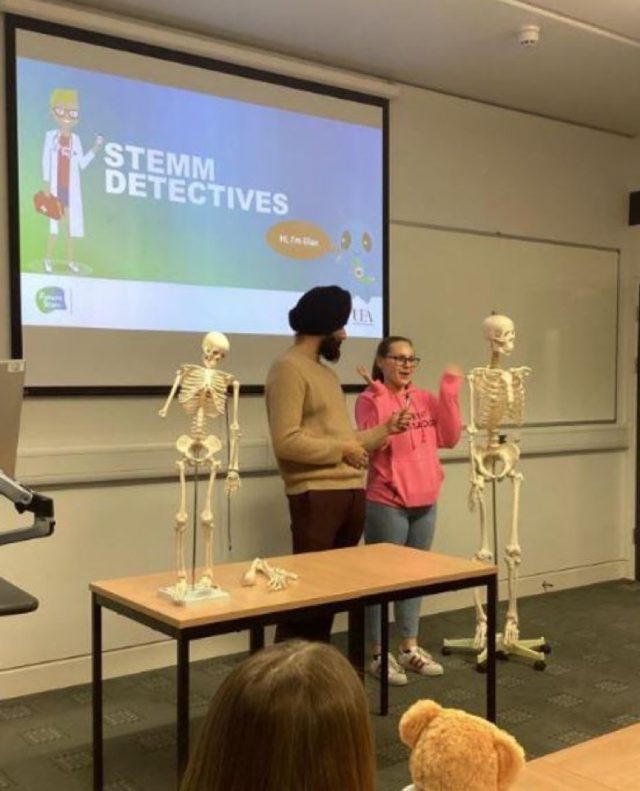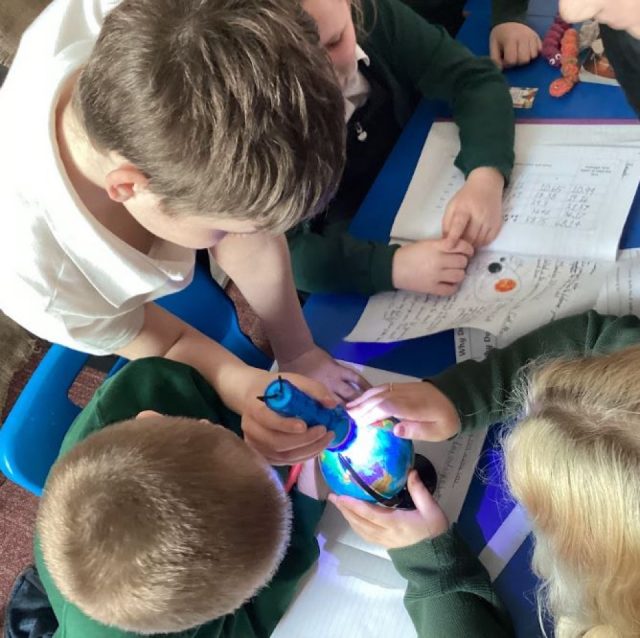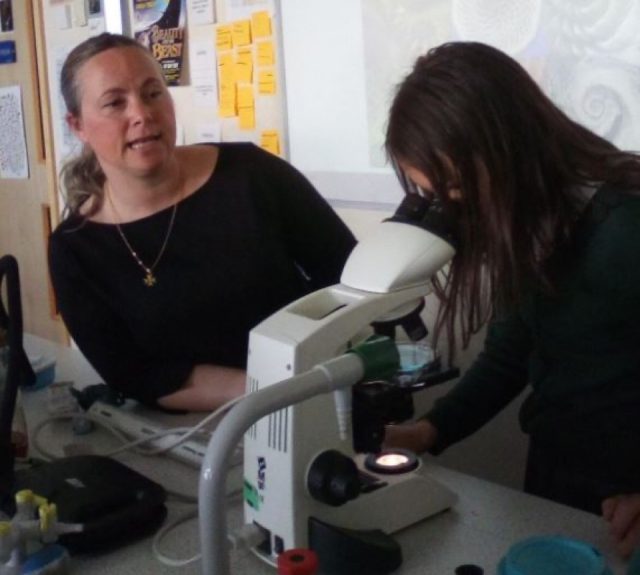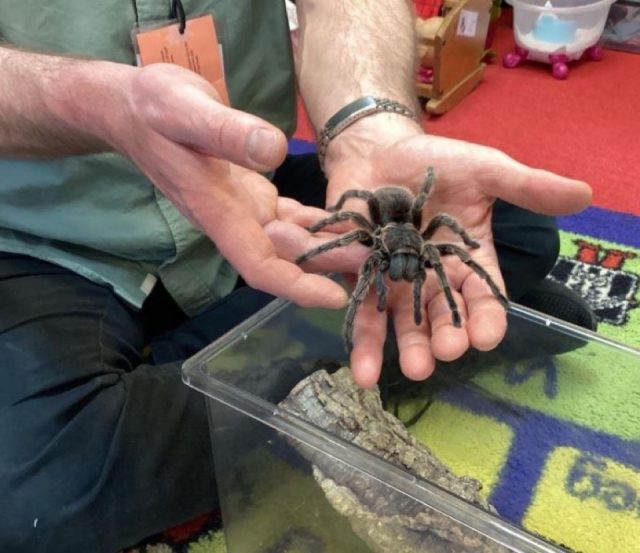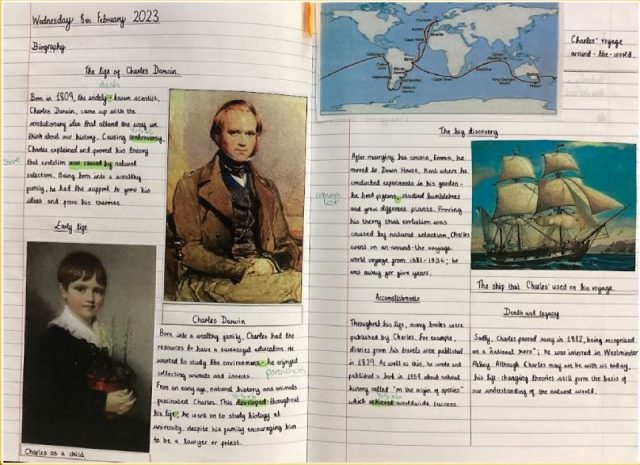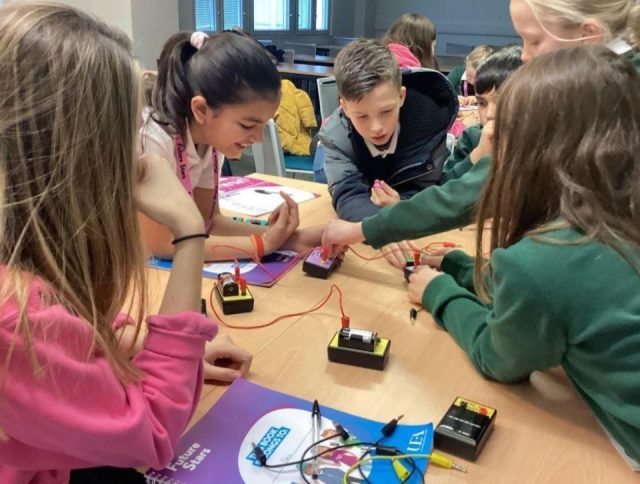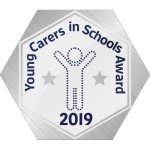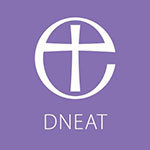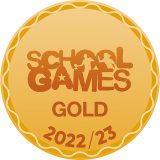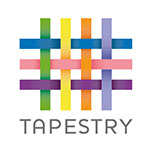“The important thing is to never stop questioning”
– Albert Einstein
Intent
Our intent is that all children leave our school curious and enthusiastic about science, having experienced a rich, enquiry-based science curriculum that allows them to learn about the world around them. Children will have the opportunity to learn through a variety of science topics stemming from the scientific disciplines of Biology, Physics and Chemistry, which change each half term. In providing the children with a wide and varied curriculum, we aim to encourage them to challenge their own misconceptions and relate their learning to the wider world. Through offering an engaging and interactive curriculum, we want to instil a love of science in all children and keep the excitement of discovery and enquiry, whilst also inspiring inquisitive minds to form and develop their own scientific questions.
Implementation
To ensure high standards of teaching and learning in Science, our curriculum is progressive throughout the whole school.
Key Concepts:
We want to enable our students to work in a scientific manner, preparing them for investigations and enquiries. Our key concepts and ‘Working Scientifically Skills’ are carried on through each year group and are taught within and alongside the domains of knowledge.
These types of scientific concepts include:
- Observing over time
- Pattern seeking;
- Identifying, classifying and grouping
- Comparative and fair testing (controlled investigations)
- Researching using secondary sources.
Domains of Knowledge: Biology, Physics and Chemistry
Early Years
Science is taught thematically, linking to topics that are linked to all their subject areas. We relate the scientific aspect of the children’s work to the objectives set out in the Early Learning Goals included in Knowledge and Understanding the World. Scientific learning falls under these themes:
- What makes me, me?
- Habitats
- What is out there?
- Lifecycles
- Seasons
- Where does food come from?
- Water
Working Scientifically
Pupils are taught to work scientifically by:
Questioning
- Scientific enquiry – observing changes, finding patterns, grouping and classifying, fair testing and researching using secondary sources
- Drawing conclusions based on data and observations
- Using evidence to justify ideas
- Using scientific knowledge to explain findings
Key Stage 1
In Key Stage 1, pupils are taught scientific knowledge and skills related to the following units:
Plants
Animals including humans
Everyday Materials
Seasonal Changes
Living things and their habitats
Lower Key Stage 2
In Years 3 and 4, pupils are taught scientific knowledge and skills related to the following units:
Plants
Animals including humans
Rocks
Light
Forces and Magnets
Living things and their habitats
States of matter
Sound
Electricity
Upper Key Stage 2
In Upper Key Stage 2, pupils are taught scientific knowledge and skills related to the following units:
Living things and their habitats
Animals including humans
Properties and changes of materials
Earth and Space
Forces
Evolution and inheritance
Light
Electricity
Enrichment: The school’s Science curriculum is enriched through our sustained partnerships with local North Suffolk Primary Hub linked to the Prince’s Teaching Institute, and DNEAT’s Science Ambassadors network, where teaching and learning incentives and ideas are shared and supported by the Primary Science Teaching Trust. We hope to build our Science capital through the annual British Science week, where we have 1 day dedicated to Science, attend virtual Science events and invite local Science organisations in to talk to the children. Pupils’ experiences are enhanced through our Forest School and after school clubs.
Impact
The Science curriculum builds towards 4 end points, describing what we want our pupils to achieve by the end of Year 6:
End Point 1: Scientific Knowledge: Biology
Students are able to develop their Scientific knowledge and conceptual understanding of the discipline of Biology. By the end of KS2, they will be able to describe and explain the key functions and parts of the body in humans and animals and how external inputs can affect these functions; observe and interpret the animal kingdom and foods chains; identify, describe and explain the features and process involved in plant growth and their life cycles; and to describe and explain inheritance and evolution.
End Point 2: Scientific knowledge: Physics
Students are able to develop their scientific knowledge and conceptual understanding of the discipline of Physics. By the end of KS2, they will be able to use and explain how light travels and creates shadows; describe and explain sound, including pitch and volume; create and use an electrical circuit; describe the effects of forces; identify mechanisms; and, describe the movement of the sun, moon and Earth and other planets in our solar system.
End Point 3: Scientific knowledge: Chemistry
Students are able to develop their scientific knowledge and conceptual understanding of the discipline of Chemistry. By the end of KS2, they will be able to group and identify materials based on their properties, describe the changes in state that can happen to different materials; and to identify and describe reversible and irreversible changes.
End Point 4: Working Scientifically Skills
Through a range of enquiry types linked to our core concepts, and running alongside the domains of knowledge, children will be able to ask their own questions and use systematic and scientific skills to investigate these. By the end of KS2, the skills the students will be able to are:
- To describe and evaluate their own and others’ scientific ideas related to topics in the national curriculum (including ideas that have changed over time), using evidence from a range of sources.
- To ask their own questions about the scientific phenomena that they are studying, and select the most appropriate ways to answer these questions, recognising and controlling variables where necessary (i.e. observing changes over different periods of time, noticing patterns, grouping and classifying things, carrying out comparative and fair tests, and finding things out using a wide range of secondary sources).
- To use a range of scientific equipment to take accurate and precise measurements or readings, with repeat readings where appropriate.
- To record data and results using scientific diagrams and labels, classification keys, tables, scatter graphs, bar and line graphs.
- To draw conclusions, explain and evaluate their methods and findings, communicating these in a variety of ways.
- To raise further questions that could be investigated, based on their data and observations.
Science is assessed in three distinct ways:
- The student’s scientific knowledge and conceptual understanding through the specific disciplines of biology, chemistry and physics.
- The student’s understanding of the nature, processes and methods of science through different types of science enquiries that help them to answer scientific questions about the world around them.
- The student’s scientific knowledge required to understand the uses and implications of science, today and for the future.



